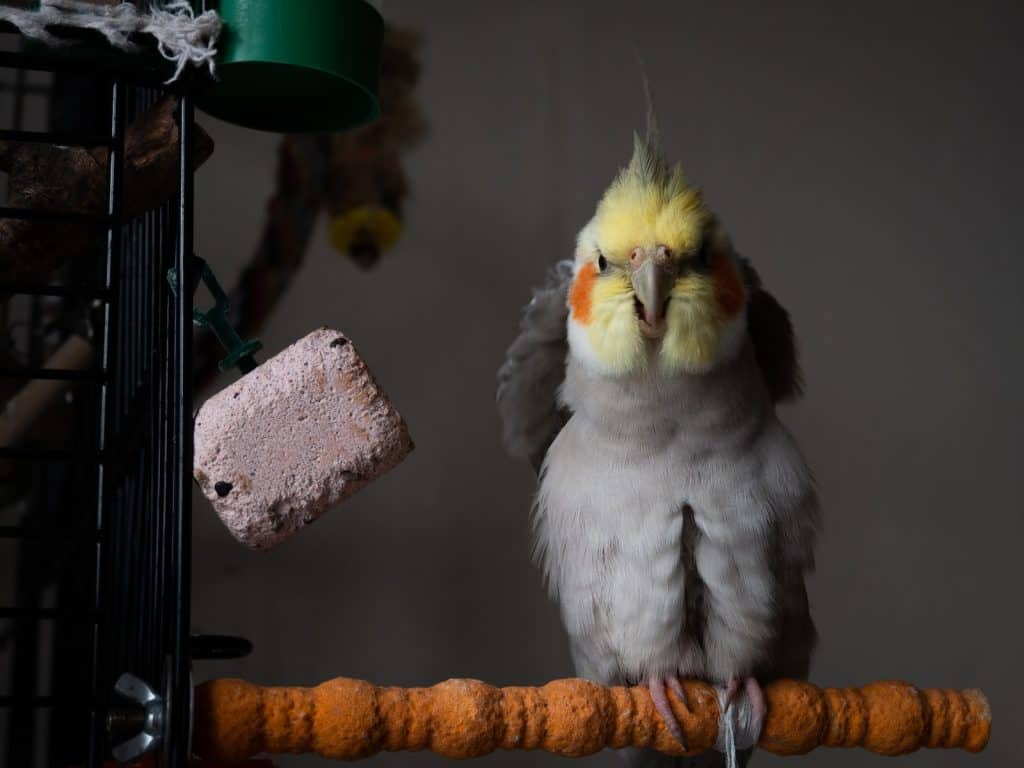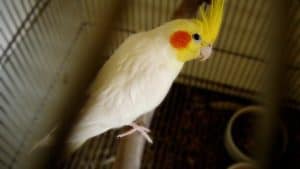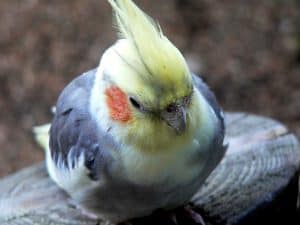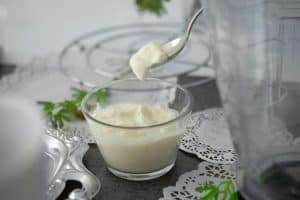Cockatiels are among the most popular pet birds, known for their friendly nature, colorful plumage, and entertaining antics. As pet owners, it’s essential to understand the behavior and biology of these fascinating creatures to provide them with the best care possible. This blog post will delve into the world of cockatiel olfaction, examining the evidence for and against the existence of a sense of smell in these delightful birds.
Can Cockatiels Smell? The Olfactory System of Birds
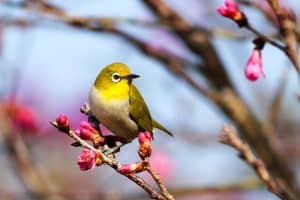
While most birds possess an olfactory system, the extent of their sense of smell varies greatly between species. For example, some birds, such as vultures and pigeons, are known to have a keen sense of smell, which they use to locate food and navigate their environment. In contrast, other bird species have less developed olfactory systems and rely more on their other senses, such as sight and sound.
In general, the bird’s olfactory system works in a similar way to that of mammals, including dogs and humans. Odor molecules in the air are detected by specialized receptor cells in the bird’s nose, which then send signals to the brain to be processed and identified as specific smells.
The Olfactory Capabilities of Cockatiels
Cockatiels possess a relatively simple olfactory system compared to some other bird species. While they do have the basic anatomical structures required for detecting smells, there is little research available on the full extent of the cockatiel’s olfactory capabilities.
Despite the lack of scientific studies, anecdotal evidence from cockatiel owners suggests that these birds can indeed detect smells. Many cockatiel owners have observed their pets showing interest in certain scents, such as the aroma of fruits or wet food. Similarly, some cockatiels appear to be able to identify their owner’s scent, which could be an indication that they possess at least a basic sense of smell.
The Debate About the Importance of Smell in Cockatiels
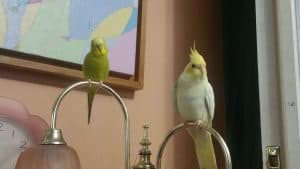
There are conflicting opinions on the importance of smell in cockatiels. Some argue that, since their olfactory system is less developed than that of other bird species, their sense of smell is not as crucial for their survival and well-being. Others believe that the ability to detect odors plays a significant role in the cockatiel’s daily life, from locating food to recognizing its owner. Cockatiels smell food, choosing to eat some items and ignore others.
The Role of Other Senses in Cockatiel Behavior and Biology
While the debate about the importance of smell in cockatiels continues, there’s no doubt that these birds possess highly developed other senses. Cockatiels have excellent eyesight, which they use to navigate their environment and locate food. Their sense of hearing is also highly developed, allowing them to communicate with other birds and detect potential threats.
How the Sense of Smell Affects Cockatiel Behavior and Care
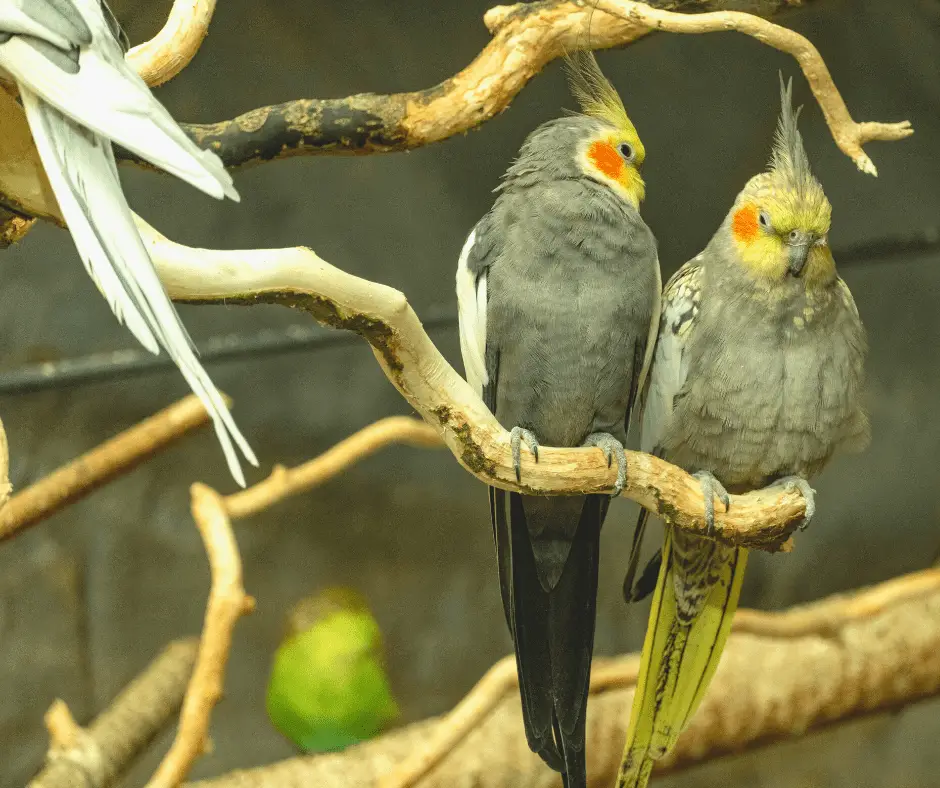
Whether or not the sense of smell plays a significant role in cockatiel behavior, it’s essential for bird owners to be aware of how it may affect their bird’s well-being. Here are some ways in which the cockatiel’s sense of smell may impact their care:
1. Feeding habits: Cockatiels may be attracted to certain foods based on their smell. Offering a variety of fruits, vegetables, and other nutritious foods can help ensure that your pet receives a balanced diet.
2. Reproduction: Some bird species use their sense of smell to locate a suitable mate. While there is limited research on the role of smell in cockatiel reproduction, it’s possible that these birds use scent to identify potential partners.
3. Social interactions: As mentioned earlier, some cockatiel owners believe that their birds can recognize their scent. This could play a role in the cockatiel’s bond with their owner and their overall well-being.
Do Cockatiels Have a Good Sense of Smell?
Overall, it’s difficult to determine how well cockatiels can smell. While there is evidence that these birds possess at least a basic sense of smell, the exact extent of their olfactory capabilities remains unknown. What we do know is that other senses, such as sight and hearing, play an important role in the cockatiel’s behavior and care. Therefore, pet owners should focus on stimulating these senses in order to ensure their bird’s health and happiness.
What a Cockatiel Smells Like to Humans?
Many people are not familiar with the scent of a cockatiel. To humans, cockatiels generally smell pleasant and have a musky odor. However, some people may be more sensitive to the scent than others. Cockatiels are also known to change their scent depending on their mood. For example, when a cockatiel is stressed, its scent will become more pungent.
Cockatiel owners often say that their birds smell like popcorn or corn chips. This is because cockatiels have a musky odor that can be described as similar to these foods. The natural scent of a cockatiel is not offensive and is usually only noticed when the bird is preening itself.
Implications for Cockatiel Care and Well-Being
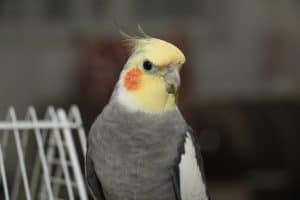
Considering the potential impact of the cockatiel’s sense of smell on their behavior and well-being, it’s important for bird owners to take steps to ensure that their bird’s environment is clean and free of unpleasant odors. Here are some tips for maintaining a fresh and healthy environment for your cockatiel:
1. Regular cleaning: Keep your cockatiel’s cage clean by removing waste, uneaten food, and dirty water daily. Dirty cage substrate should also be removed regularly. Wash the cage with hot water and a mild detergent or undiluted white vinegar at least once a week.
2. Maintain good hygiene: Ensure that your cockatiel has access to a clean environment by washing your hands before handling your bird, and cleaning any toys or perches regularly.
3. Monitor for foul odors: If you notice a persistent unpleasant odor in your cockatiel’s cage, it’s essential to identify the source and address the issue. A foul smell could be a sign of poor hygiene, a dirty environment, or an underlying health issue.
4. Consult with a veterinarian: If you’re concerned about your cockatiel’s sense of smell or overall health, consult with an avian veterinarian for advice and guidance.
- Removes droppings from all types of avian diets including seed fruit nuts meat vegetables nectar bugs grains formulated diet and greens
- Removes even the toughest stains from clothing upholstery and carpets
- The only product safe enough to use that does NOT cause dust when cleaning the cage
- Removes droppings from all types of avian diets including seed fruit nuts meat vegetables nectar bugs grains formulated diet and greens
- Removes droppings from all types of avian diets including Seed fruit nuts meat vegetables nectar bugs grains formulated diet and greens
- Removes even the toughest stains from clothing upholstery and carpets
- The only product safe enough to use that does not cause dust when cleaning the cage
- Removes droppings from all types of avian diets including Seed fruit nuts meat vegetables nectar bugs grains formulated diet and greens
What other senses do cockatiels rely on?
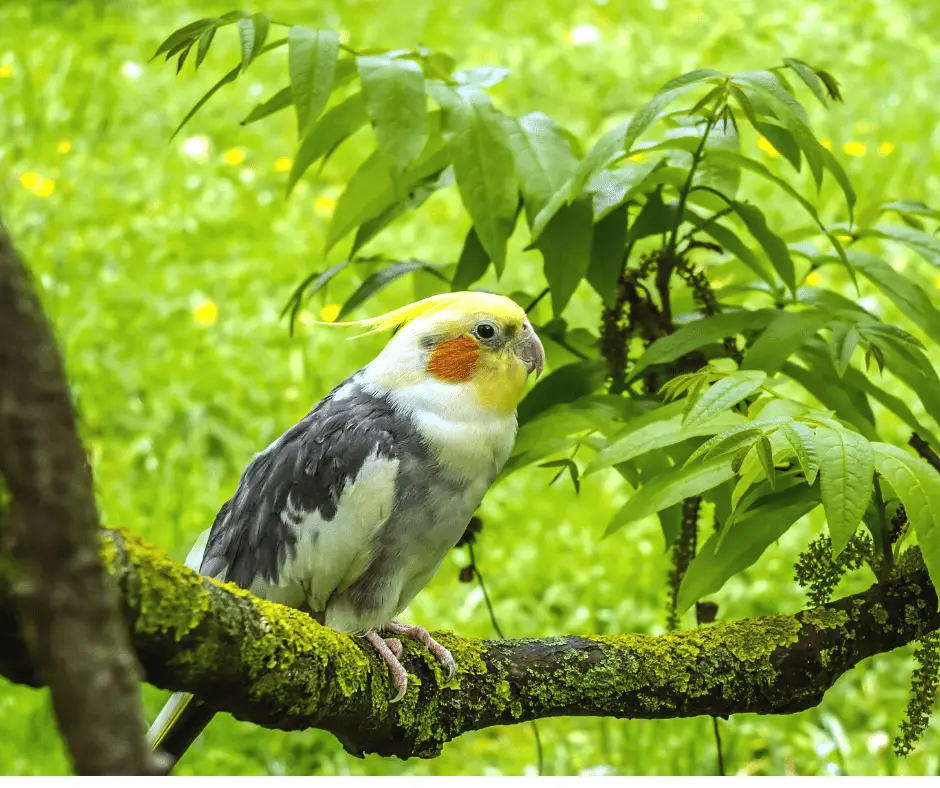
Sight:
Cockatiels rely heavily on their sight and have very well-developed eyes. They can see a range of colors and are able to detect movement from a distance.
Hearing:
Cockatiels also have very well-developed hearing and can hear sounds that we cannot. They can detect the slightest sound and can tell the difference between different types of sounds.
Touch:
Cockatiels have a well-developed sense of touch and can feel textures and movements that we cannot. They are able to find food and water by using their sense of touch.
What a cockatiel smells like to other animals?
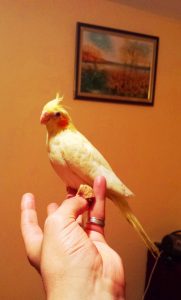
Do you ever wonder what your cockatiel smells like to other animals? You might be surprised to know that they have a very distinct smell. Here is a breakdown of what a cockatiel smells like to other animals.
To humans, cockatiels generally smell faintly of dust and feathers. But to other animals, they smell much different. For instance, to a dog, a cockatiel smells mostly like skin and sclera (the white part of the eye). They can also pick up on the bird’s unique scent, which is made up of chemicals like squalene and 3-methylindole.
Interestingly, 3-methylindole is also found in many mammal species, including skunks! So it’s possible that your cockatiel smells like a skunk to other animals. But don’t worry, this scent is usually not strong enough for us humans to detect.
Cockatiels also have a very pungent urine scent, which dogs and cats can detect quite easily. This is because their urine contains high levels of ammonia, which is very irritating to the nose. So if your cockatiel seems extra grumpy and is spraying a lot, it’s probably because they’re feeling threatened by another animal in the house!
What do cockatiels smell like?
Cockatiels typically have a musky odor that is generally described as similar to popcorn or corn chips. The natural scent of a cockatiel can sometimes be quite pleasant and not offensive, but it may become more noticeable when the bird is preening itself. In addition to its own unique smell, cockatiels also pick up odors from their age, food, and other objects in their environment.
This is why it’s important to keep your cockatiel’s cage clean and free of any unpleasant odors to help maintain its health and well-being. Additionally, some owners like to give their birds baths or mist them with water as a way of keeping them smelling fresh.
Conclusion
Cockatiels rely heavily on their sense of smell to interact with the world around them. They can detect a variety of odors, from food and water to potential threats. Understanding your bird’s sense of smell can help you create an environment that is comfortable and safe for your pet. Additionally, being aware of the smells they produce can help you identify potential issues with your cockatiel’s health or environment. With the right care and attention, your bird can enjoy a pleasant and stimulating life!
Other suggested articles:
